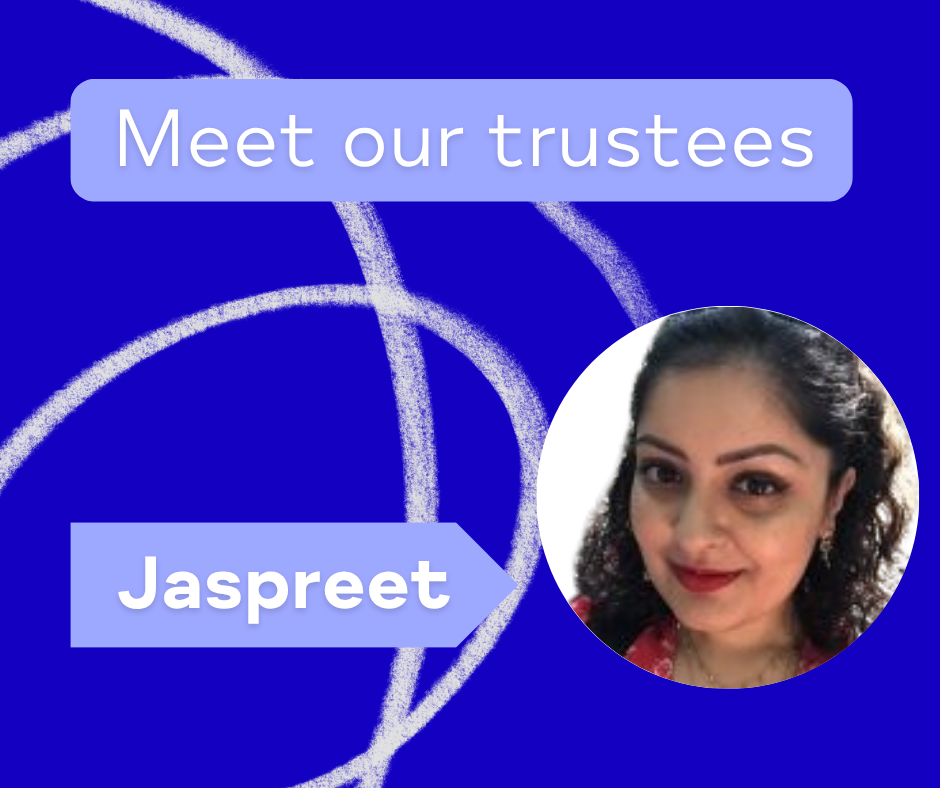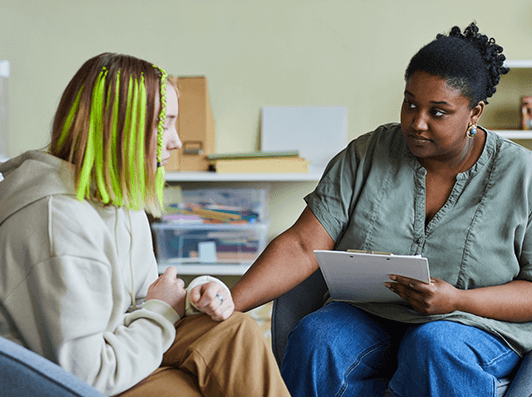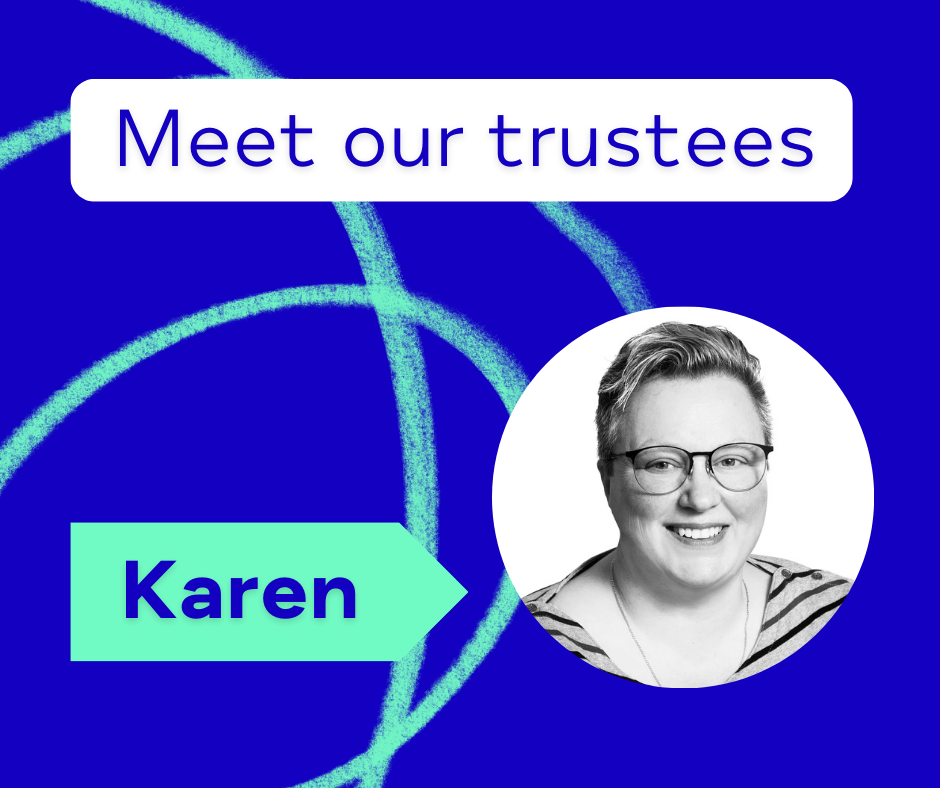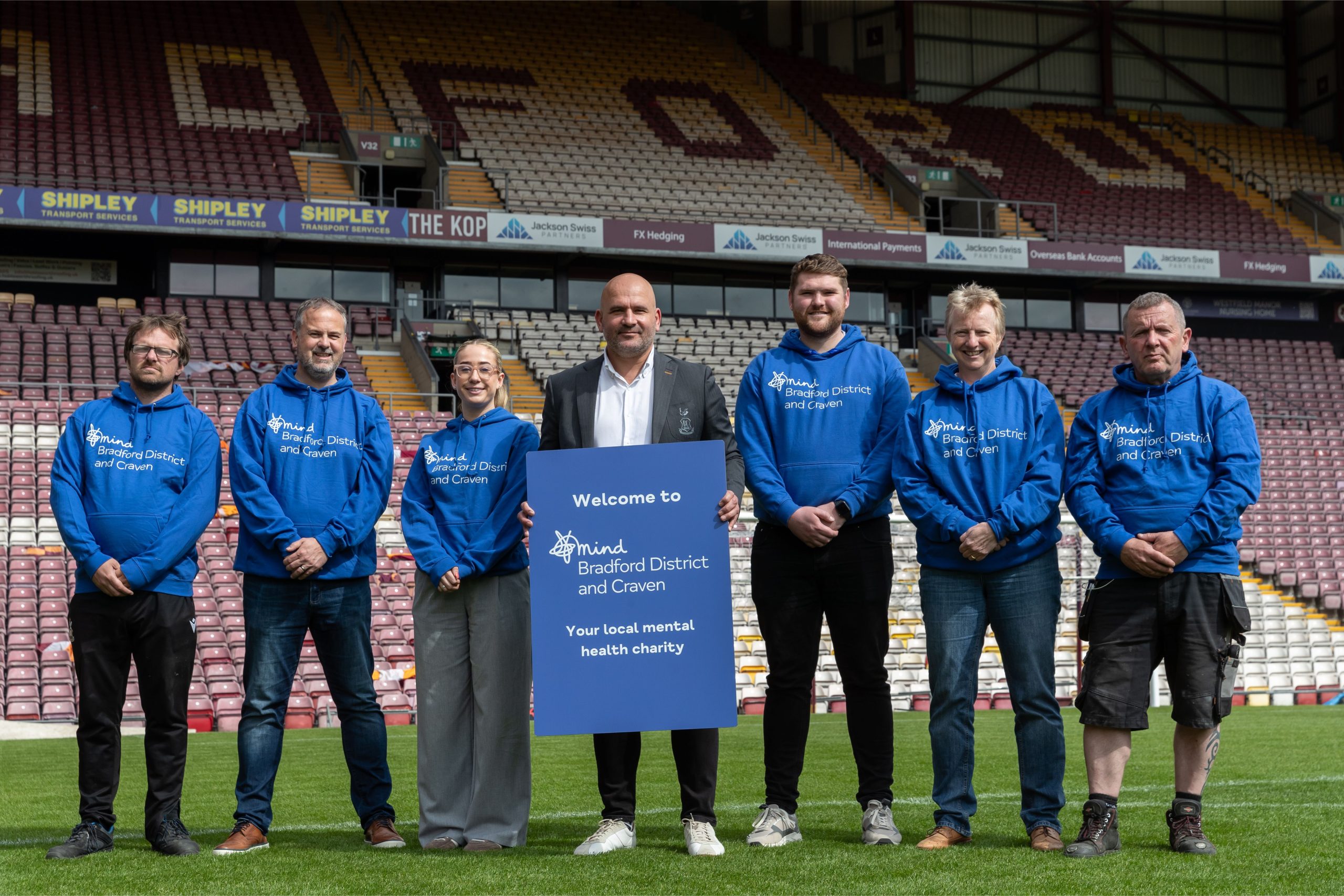Meet our Trustee, Jaspreet
Hello, my name is Jaspreet and I’m proud to serve as a trustee on the Board of BDC Mind. I chose to volunteer with Mind because I’ve seen first-hand how vital community based mental health supporter is.

Luke Maunsell
Struggling with mental health doesn’t discriminate as the new town mayor of Keighley, Luke Maunsell, has found out.
Bradford District and Craven Mind client Ian Lamb interviewed him to find out more about his journey to recovery.
Here I am, in a much better place.

Ian Lamb
Congratulations on being elected as not only a town mayor but Keighley’s youngest ever town mayor! How does that feel and what would you like to achieve?
It’s brilliant and it means everything to me. I’d been training as a teacher but I also wanted to make a difference and so being in this position is enabling me to stand up for the town and raise money for much-valued charities as well as encouraging young people to engage more.
I read the interview you did for Keighley News. How did it feel opening yourself up and talking about such a difficult time in your life?
It actually felt refreshing. I’d been pushed to the edge so having come out the other end and being in a position where I could talk about it, I found it to be a good experience.
I’m speaking up. People, and especially the young, should be encouraged to speak up and get the guidance and support they need. People need to know that it isn’t just about ‘manning up’ or ‘snapping out of it’, that people do need help and support and there is help and support out there.
It is good to open up and have folk listen to you. Talking is therapeutic and people need to know that they are not alone. We need more people to be open and to talk.
When did you first start experiencing mental health distress?
Roughly about three to four years ago. It wasn’t a quick thing either, it was more of a gradual thing. I’d been feeling low which snowballed. I’d be quiet and just not say anything. I had gained weight as a result and, after a period of time, it built up then I broke down.
Teaching at the time was not a good environment and I actually broke down at work. While walking home from work, I felt so depressed that I contemplated walking out in front of a moving truck. I knew then that I needed to get help but I didn’t fully know how to or where to go.
How you described ‘hard to speak up’ and ‘difficulty getting up in the morning’ could all be seen as serious signs of depression. How does it feel for you as a guy being linked with a mental health issue such as depression?
It’s about putting it into perspective. If I’d have twisted my ankle or broken my arm then I would have sought help immediately. Regardless of what gender you are, people can and do get depressed and go to places and people who you can talk to in confidence.
It’s so important for people to do this, for people to get that help and to not be scared about it.
There are signs; I felt so fatigued. It became more than just feeling miserable which eventually saw me thinking about not wanting to carry on. I needed to do something about it.
As guys, as men, we struggle more with our feelings and with opening up. As a result, men – especially those in their late 30s to early 50s – are more likely to die by suicide. So, it’s very real and a very serious problem.
What was your recovery process like?
It was a very long process – something like this isn’t going to be a quick fix. It was a good 18 months for me to be in a position where I felt I could function again.
My recovery began with me being non-verbal. I found it so difficult to talk. I did take antidepressants and I also went down the therapy route. With time, I worked my way up to being able to talk and I stuck with my therapy for a good five months.
Of course, the lengths of recovery will be different for different people as some may take longer or not as long. But they will only find that out for themselves if they reach out and get the help and support they need.
Once I started feeling more able to function, I took up exercising and especially walking. I aim to walk as much as I can, sometimes up to 20 miles. And of course, I quit my job and now here I am, in a much better place.
How did you find your family and friends?
It was a mixed bag. Most were helpful but there were a few not so helpful and that’s because they didn’t understand it – a great big reason as to why we really do need to talk about it more.
By talking about it, we can educate people which in turn creates an understanding. I have an aunt who was brilliant and I feel very fortunate to have that support because it was my aunt who strongly encouraged me to go for counselling.
When it comes to friends, my closest friends were vital to my recovery. They’d keep saying positive things to me which really helped and even those friends who didn’t understand, I don’t resent them for it.
It is hard to know what to say or how to say the right thing and this is why people and groups such as Bradford District and Craven Mind become a much-needed place for people to go and get that help and understanding.
Do you wonder how people go on when they haven’t got that support from people near them?
Yes, I do and it is very worrying. And again, this is why groups become so important because they do have the people and the resources which allow them to connect with people. Places like Samaritans as well as Bradford District and Craven Mind, there are places for people to go and seek help.
People need to reach out.
Several charities even have an online chat or provide a text talk so if you do really struggle with talking and opening up, at least there’s that option to not have to be face-to-face if you don’t want to. And they are free to use too.
Have your colleagues been supportive?
Yes, many fellow councillors have gone that extra mile by checking in on me to see if I’m OK. It’s been a great revelation.
What have you discovered about young people and their mental health needs?
It’s a worrying time. Young people have a lot to cope with as it is with exam pressures, growing up and body image as well as peer pressure so it is a tricky time for them.
Having schools more educated around mental health issues could be a good place to start where they can offer that support, that structure where young people can feel safe. Having more youth groups which also have knowledge about mental health issues and maybe even support groups that are specifically for mental health issues and worries.
All people can do, and especially the young, is to be the best they can. It’s OK to make mistakes and to not worry so much when things don’t turn out as they may have hoped.
How do you plan on pushing mental health while you’re in office?
By getting a lot more information out there about the various groups and wellbeing services that are on offer across Keighley and Bradford and letting people know that there are places to go and that people are there and are trained to listen and help.
It’s about more talk and less stigma. I feel it’s my mission to strongly encourage this as well as doing what I can for and with charities.
Things like this should be ingrained within the NHS. Sending someone for a detox from alcohol or drugs will work much better if the service user can have the talking therapies that go with it. There are lots of different therapies out there which can be tailored to each individual but it’s also about making them more affordable and accessible for everyone.
What have you learned about yourself?
That anyone can go through mental health problems and through this, I have become more self-aware. I’ve also found it interesting to see how the brain works, how I saw myself while ill to how I see myself now.
In a strange sense, I’m kind of glad I went through it. The pain, the upset, is like a bittersweet thing because I have had to re-build myself back up. I’ve learned to get things into place that work for me and I feel a much better and stronger person for it.
There is light at the end of that very dark tunnel.
If you need to talk to someone, we’re here for you
Our free helpline Guide-Line is open every day 12pm-12am on 08001 884 884, our friendly team will be there to listen and provide confidential, emotional support.
Our crisis support service Safe Spaces is open to anyone aged 7 and over and living in the Bradford district and Craven. If you are feeling like you need urgent support over the phone or in-person then call First Response on 0800 952 1181 and ask for ‘Safe Spaces’.
Posted on: 24th August 2022

Hello, my name is Jaspreet and I’m proud to serve as a trustee on the Board of BDC Mind. I chose to volunteer with Mind because I’ve seen first-hand how vital community based mental health supporter is.

Safe Spaces is crisis support service led by The Cellar Trust and Bradford District and Craven Mind alongside […]

Hello, my name is Karen and I’m a trustee here at Bradford District and Craven Mind. I became a trustee last year, you might want to know why I decided to do that. Well, it’s quite simple, I felt that I wanted to give something back and get involved in something beyond my day job.

Bradford District and Craven Mind has teamed up with Bradford City AFC in a new […]